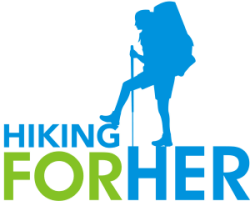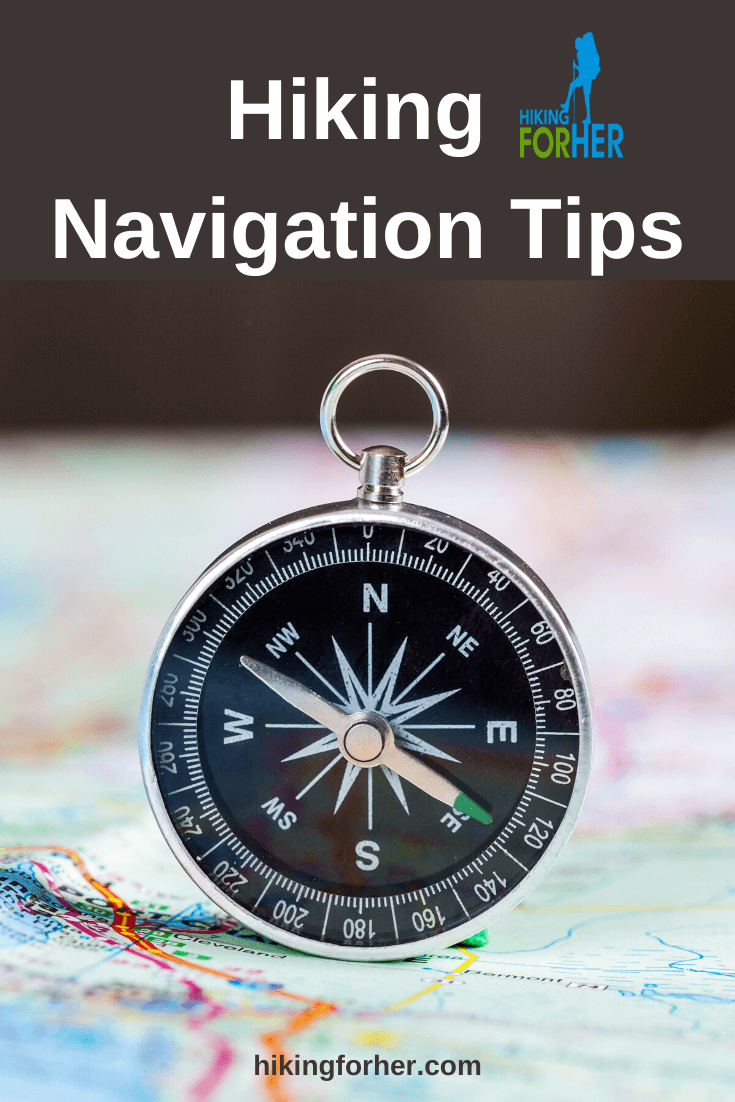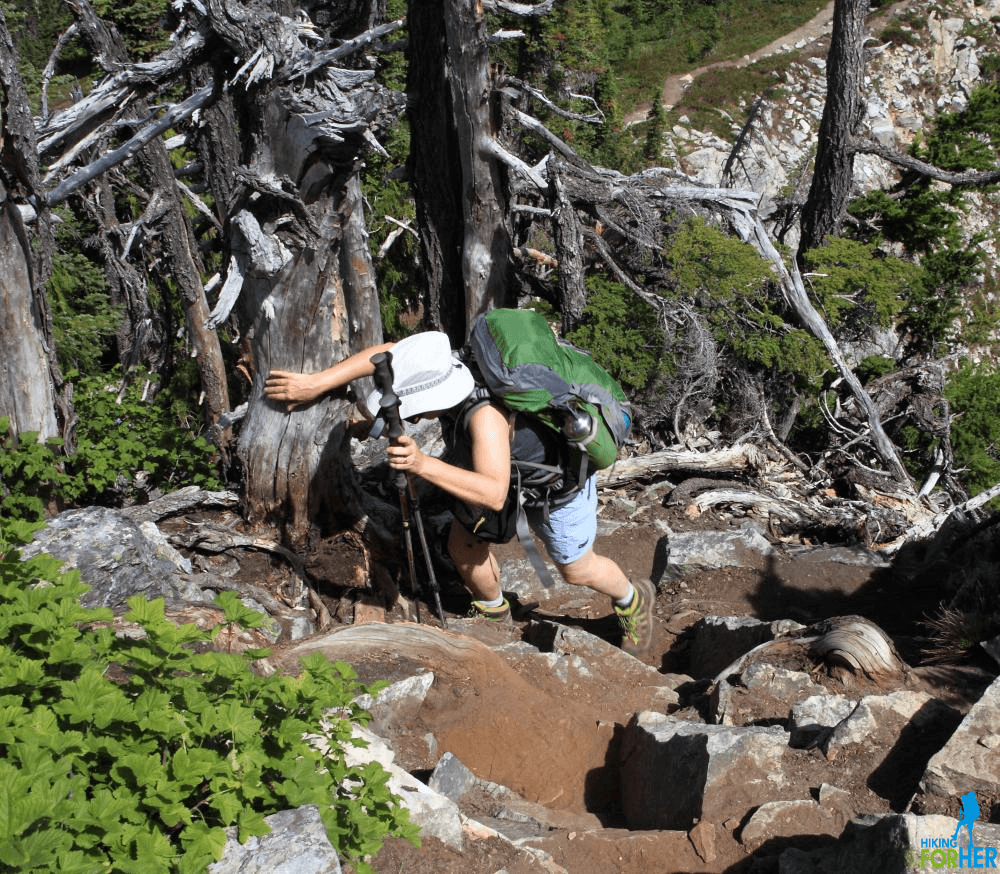Hiking Navigation:
How To Stay Found
By Diane Spicer
Times have changed for hiking navigation.
Back in the day (when dinosaurs still roamed the Earth, or 1971 when I started hiking), we had little sheets of paper called maps and nifty little devices called compasses.
Plus our wits (most of the time).
Hiking women today have access to a staggering variety of hiking navigation aids:
- satellite-detailed maps
- Google Earth (free download, with hiking trails marked in bright red)
- World Wind from NASA
- GPS: Global Positioning System devices
- personal locator beacons, called PBLs for summoning help to your location (an absolute must for solo hikers)
- satellite messengers
- information about orienteering (map and compass skills for hikers)
Guthook Guidesnow called Far Out Guides: low cost apps for phones, with maps and commentary on long distance trails and regional trail systems
Knowledge is the key
to safe navigation
Regardless of which system you use for figuring out where you're going, the underlying fundamental is knowledge.
It will cost you some time and effort to figure out which navigational tools are the most important for the type of hiking you do.
But don't begrudge that personal investment in your safety, along with the money you invest in it.
- Staying found (as in, not getting lost) means that you don't inconvenience - or scare - other people.
And count yourself in on that!
Peace of mind as a hiker is worth way more than the money it takes to navigate safely in all weather conditions.
Tip: One of the easiest ways to figure out hiking navigation is through this free four part course from REI Co-op.
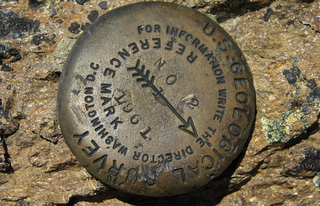 Any idea what this is? Or why it matters to hikers?
Any idea what this is? Or why it matters to hikers?
Hiking navigation for geocaching
Maybe wandering around in the woods for no reason appeals to you.
- Use topographical maps to figure out cool places to explore.
Or perhaps you're a hiker who likes to have a real purpose when you hit the trail.
If that's you, are you a geocaching hiker? If not...
- Get up to speed by reading these Geocaching 101 tips.
Are we too technology driven?
Food for thought:
- Is it possible to rely too heavily upon technology?
- Could it lull you into a false sense of security?
- Or distract you from being safe while in the outdoors?
This article about the Guthook app (now called Far Out) and how it has changed thruhiking forever is worth a read.
Hopefully you don't rely upon your cell phone exclusively when you're hiking.
The chances of getting a signal while under dense forest cover, in a deep valley, or during nasty weather are rather low.
And cell phone batteries have been known to discharge completely at exactly the wrong time, leaving you helpless if you don't know:
- where you are,
- how many miles you've logged,
- how long it will take to get back to the trailhead, or
- whether or not you can survive a night outdoors (carry the ten essentials to stack the odds in your favor).
Trail tip:
- Protect your pricey electronics with a waterproof case. Read my review of an inexpensive but useful JOTO phone case.
How to avoid getting lost on a hike
I've noticed that two things contribute to the tales of woe which hikers share once they return to civilization after getting lost:
- Complacency
- Lack of planning
It's so easy to fall under the sway of "it will NEVER happen to someone as smart as me".
And it's also easy to overlook, ignore or plead ignorance of all the planning it takes to be a safe, not lost hiker.
If you let your trail buddies do all the hiking navigation, you might be in for a rude shock if they become incapacitated or you have to go it alone someday.
Read these Hiking For Her tips on how to avoid the panic of getting lost, and how to deal with the panic of not knowing where you are on a hike.
Then go back up to the top of the page and start putting together your own personal navigation plan.
It pays to stay found, wouldn't you agree?
Hiking Navigation Tips
|
I get emails all the time about what I wear, eat, carry and love to use on the trail. That's
why I provide affiliate links to you: the best gear that I use myself and have seen used by other hikers is instantly
available for your consideration, and the gear company sends a few
pennies per dollar to this reader-supported hiking website. There is no added cost to you! Everyone ends up a winner: Great gear for you, strong gear companies, and more free hiking tips for everyone. Thanks very much for your support. It's warmly and sincerely appreciated. It also helps send these hiking tips to all your virtual trail buddies around the globe. |
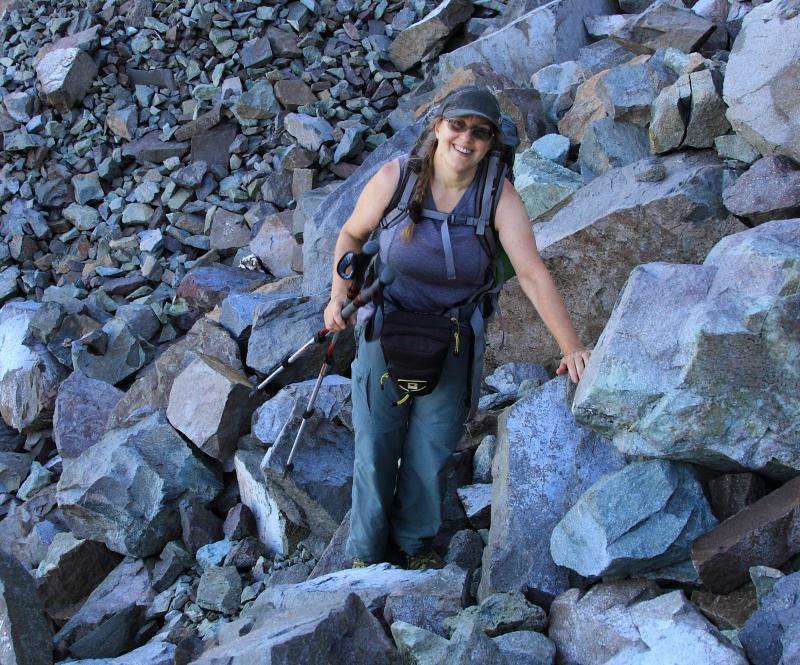 |
